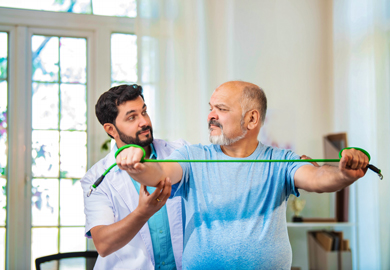Consulting a doctor for knee issues is essential to prevent long-term damage. You should see an orthopedic specialist if:
- You experience persistent knee pain even while resting.
- Stiffness makes walking, climbing stairs, or standing difficult.
- Swelling, redness, or warmth around the knee joint is noticeable.
- Medications and physiotherapy fail to relieve symptoms.
- Knee pain affects sleep or daily activities.
Early intervention helps prevent further joint degeneration and may allow for less invasive treatment options.
Consulting a doctor for knee issues is essential to prevent long-term damage. You should see an orthopedic specialist if:
- You experience persistent knee pain even while resting.
- Stiffness makes walking, climbing stairs, or standing difficult.
- Swelling, redness, or warmth around the knee joint is noticeable.
- Medications and physiotherapy fail to relieve symptoms.
- Knee pain affects sleep or daily activities.
Early intervention helps prevent further joint degeneration and may allow for less invasive treatment options.















.svg)









